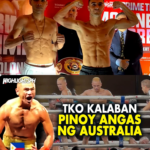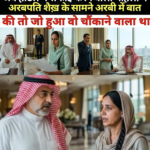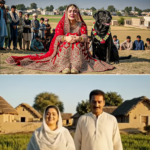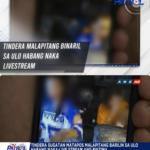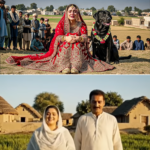Historic Surrender: PKK Kurdish Fighters End Decades-Long Battle for Independence in Turkey
The Last Stand: How the PKK’s Surrender Ended a Four-Decade Kurdish Struggle in Turkey
Prologue:
In the rugged mountains of northern Iraq, far from the bustling streets of Istanbul and Ankara, a historic declaration echoed through the valleys in May 2025. The Kurdistan Workers’ Party (PKK), once the most feared and resilient Kurdish militant group, announced an end to its armed struggle against Turkey—a conflict that had shaped the destinies of millions and claimed tens of thousands of lives over four turbulent decades. The world watched as a chapter of bloodshed and rebellion closed, and the fate of Turkey’s Kurds entered a new, uncertain era.
.
.
.

Chapter 1: A Nation Divided
Turkey’s relationship with its Kurdish minority has always been fraught with tension. Kurds, who make up about 20 percent of Turkey’s population, have long felt marginalized—culturally, politically, and economically. Since the foundation of the Turkish Republic, state policies sought to assimilate Kurds, often denying their distinct language and identity. For many Kurds, the dream of an independent homeland—Kurdistan—remained a distant hope, but one that fueled generations of resistance.
The PKK, founded in 1978 by Abdullah Öcalan, emerged from this climate of repression and aspiration. Initially, the group’s goal was radical: the creation of an independent Kurdish state spanning parts of Turkey, Iraq, Iran, and Syria. By 1984, the PKK launched its first armed attacks, marking the start of an insurgency that would become one of the world’s longest-running and deadliest conflicts.
Chapter 2: The Fires of Rebellion
The PKK’s campaign was brutal and uncompromising. Villages burned, soldiers and civilians alike were killed, and the Turkish military responded with overwhelming force. The southeast of Turkey became a war zone, with entire communities caught between the PKK and the state. Over the years, more than 40,000 people died—fighters, soldiers, and innocents. The violence ebbed and flowed, but the dream of Kurdish autonomy never died.
Internationally, the PKK was designated a terrorist organization by Turkey, the United States, and the European Union. Yet, for many Kurds, the group’s fighters were seen as freedom fighters, sacrificing everything for the Kurdish cause. The PKK’s leader, Abdullah Öcalan, became a symbol of resistance, even after his capture in 1999 and subsequent life imprisonment on Imrali Island.
Chapter 3: Shifting Sands
By the 1990s, the PKK’s goals began to shift. Realizing that outright independence was unattainable, the group softened its demands, seeking autonomy and cultural rights within Turkey instead. Ceasefires were declared in 1993, 2013, and 2015, but each time, hope was dashed by renewed violence. Political efforts, such as the peace process initiated by the Turkish government in the early 2010s, faltered amid mutual distrust and provocations.
Meanwhile, the region’s geopolitics changed dramatically. The Syrian civil war and the rise of ISIS gave Kurdish groups new prominence—and new enemies. In Syria, Kurdish militias carved out autonomous zones, while in Iraq, the Kurdistan Regional Government gained de facto independence. These developments put pressure on the PKK, whose bases in the Qandil Mountains of northern Iraq became increasingly isolated.
Chapter 4: The Winds of Change
By 2025, several factors converged to make the PKK’s continued armed struggle untenable.
First, Turkey’s government, led by President Recep Tayyip Erdoğan and his ally Devlet Bahçeli of the Nationalist Movement Party (MHP), launched the “Terror-Free Turkey Initiative.” This campaign, backed by sweeping military operations and political crackdowns, significantly weakened the PKK’s operational capabilities. The state’s message was clear: there would be no tolerance for armed rebellion.
Second, the collapse of Bashar al-Assad’s regime in Syria and shifting alliances in the region left Kurdish groups vulnerable. The PKK found itself isolated, with fewer safe havens and dwindling international support.
Third, and perhaps most importantly, was the enduring influence of Abdullah Öcalan. Despite being imprisoned for over 25 years, Öcalan remained the spiritual leader of the Kurdish movement. His calls for peace carried immense weight among PKK fighters and supporters. In February 2025, Öcalan penned a letter from his cell on Imrali Island, urging the PKK to lay down its arms and seek a peaceful, political solution.
Chapter 5: The Congress of Surrender
In early May 2025, the PKK convened its 12th Congress at its headquarters in the Qandil Mountains. The mood was somber but resolute. The organization’s leadership debated its future, weighing the costs of continued conflict against the possibility of peace.
On May 12, the PKK issued a historic statement: it would immediately cease all armed operations and dissolve its organizational structure. The group’s leaders acknowledged the toll of four decades of war and expressed hope that their decision would pave the way for a new era of Kurdish rights and Turkish unity.
The announcement sent shockwaves through Turkey and the wider region. For President Erdoğan and his government, it was a moment of triumph—a vindication of their hardline policies and a potential turning point in Turkey’s long struggle with Kurdish militancy. The ruling AKP party welcomed the PKK’s surrender, pledging to monitor the disarmament process closely and warning against any attempts to undermine the peace.
Turkey’s Defense Minister, Yaşar Güler, demanded that the PKK and all affiliated organizations surrender immediately and unconditionally. The message was stern: there would be no negotiations, no half-measures.

Chapter 6: The Letter from Imrali
The PKK’s decision was not made in a vacuum. It followed months of internal debate and, crucially, the letter from Abdullah Öcalan. Smuggled out of Imrali Prison and read aloud at the congress, Öcalan’s words were clear and urgent:
“I call upon all my comrades to lay down arms and dissolve the organization. The time has come to seek a peaceful, political solution for our people.”
Öcalan’s appeal resonated deeply. For many PKK fighters, he was more than a leader—he was a father figure, a visionary. Even from prison, his influence shaped the destiny of the Kurdish movement. By heeding his call, the PKK hoped to secure his eventual release and open a path toward reconciliation with the Turkish state.
Chapter 7: The Human Cost
For the families of the fallen—both Kurdish and Turkish—the PKK’s surrender was bittersweet. Decades of violence had left scars that would not easily heal. Entire villages had been uprooted, generations lost to war. In Diyarbakır, the unofficial capital of Turkish Kurdistan, elders gathered in tea houses to discuss the news. Some wept for lost sons and daughters; others dared to hope that, at last, their grandchildren might know peace.
Official estimates suggest that more than 40,000 people—soldiers, civilians, and PKK fighters—died in the conflict. The true number may never be known. For every casualty, countless more suffered displacement, trauma, and loss.
Chapter 8: The Road to Autonomy
The PKK’s surrender did not mean the end of Kurdish aspirations. Over the years, the group had shifted its demands from full independence to autonomy and cultural rights. Kurdish politicians, artists, and activists continued to press for recognition of their language, education, and political representation.
Turkey’s government, however, remained wary. Memories of past ceasefires—each broken by renewed violence—made officials cautious. The AKP and MHP insisted that any peace would be on their terms: no armed groups, no separatism, and no compromise on Turkey’s territorial integrity.
Yet, there were signs of hope. In the weeks following the PKK’s announcement, Kurdish cultural festivals were held openly in cities like Van and Şanlıurfa. Kurdish-language broadcasts increased, and local leaders called for dialogue rather than confrontation.
Chapter 9: The International Response
Globally, reactions to the PKK’s surrender were mixed. The United States and European Union, both of which had long designated the PKK as a terrorist organization, welcomed the end of violence but urged Turkey to address the root causes of Kurdish discontent. Human rights groups called for the release of political prisoners and an end to restrictions on Kurdish expression.
In Iraq and Syria, where Kurdish militias remained active, the PKK’s decision raised questions about the future of Kurdish autonomy movements. Would other groups follow suit, or would the struggle continue under new banners?
Chapter 10: The Legacy of Abdullah Öcalan
Abdullah Öcalan’s role in the PKK’s surrender was both symbolic and practical. From his prison cell, he had steered the movement away from violence and toward politics. His supporters now called for his release, arguing that his leadership was essential for a lasting peace.
For the Turkish state, Öcalan remained a controversial figure—reviled by many, revered by others. Whether he would ever walk free was uncertain, but his legacy was secure: he had brought an end to one of the world’s most intractable insurgencies.
Chapter 11: The Challenge Ahead
The PKK’s surrender marked the end of an era, but not the end of the Kurdish question in Turkey. The wounds of war would take years to heal, and trust between Kurds and the Turkish state remained fragile. The government’s response—whether conciliatory or repressive—would determine whether peace would hold.
For the Kurds, the struggle for rights and recognition continued. Political parties, civil society organizations, and ordinary citizens pressed for reforms, hoping that the sacrifices of the past would not be in vain.
Epilogue: A New Dawn
On a quiet morning in the Qandil Mountains, the PKK’s flag was lowered for the last time. Fighters embraced, some weeping, others silent. The guns fell silent, and a new chapter began.
For Turkey and its Kurds, the future was uncertain but filled with possibility. The end of the PKK’s armed struggle offered a chance—perhaps the last, best chance—for reconciliation, justice, and a shared destiny.
The story of the PKK’s surrender is not just the end of a war; it is the beginning of a new search for peace, dignity, and hope in a land long divided by blood and dreams.
News
Missing PG Student Monica from Darbhanga CM College Found in Shocking Condition—Police Stunned
Missing Darbhanga CM College Student Monica Found Safe—Reveals She Left Home Willingly to Marry A week-long mystery surrounding the disappearance…
Chaos on the Kanwar Yatra: Devotees Go on Rampage, Vandalize Dhaba from Muzaffarnagar to Roorkee!
Kanwar Yatra Turns Violent: Kanwariyas Vandalize Dhabas from Muzaffarnagar to Roorkee Over Onion in Food A shocking wave of violence…
Uproar After Samajwadi Party Leader Sunil Yadav’s Death: Ex-MLA and Brother-in-Law Named in FIR!
Uproar in Sultanpur After Samajwadi Party Leader Sunil Yadav’s Mysterious Death: Former MLA and Brother-in-Law Named in FIR A wave…
Shocking Viral Video: Teacher Beats Student with Stick in Bihar School—Discipline or Violence?
Bihar School Turns Battleground: Viral Video Shows Teacher Beaten Brutally by Angry Parents—Discipline or Violence? A shocking video has taken…
Forced to Strip at Knifepoint: Obscenity in the Name of Jobs—What’s Happening in Uttar Pradesh?
Job Promise Turns Nightmare: Woman Forced to Undress at Knifepoint in Uttar Pradesh Official’s Quarters Uttar Pradesh: A shocking video…
UP Education Minister Injured in Road Accident as Convoy Cars Collide
UP Education Minister Gulab Devi Injured in Road Accident as Convoy Cars Collide Hapur, Uttar Pradesh: Uttar Pradesh’s Education Minister,…
End of content
No more pages to load








